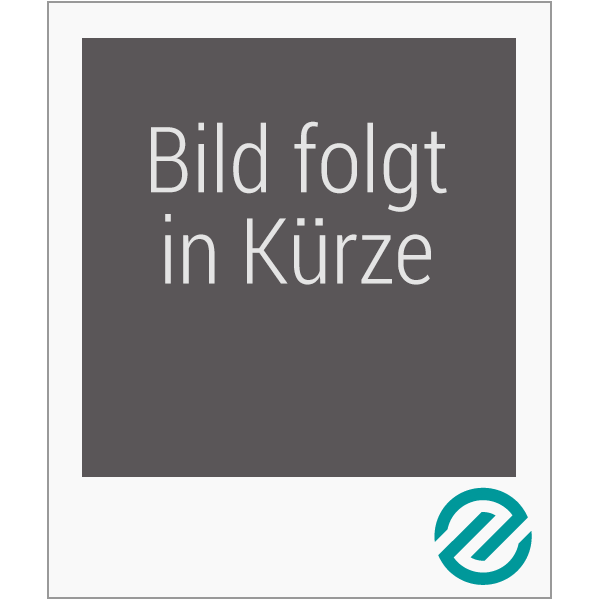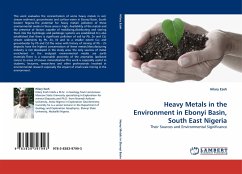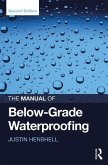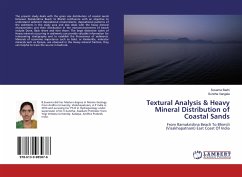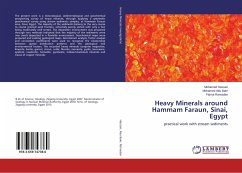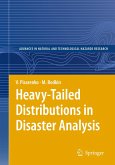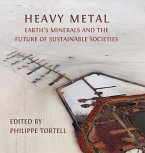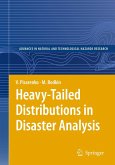Control of Heavy Metals in the Environment
Recent Advances in Metal Toxicity, Pollution Control, and Remediation Techniques
Herausgeber: Chen, Jiaping Paul; Hung, Yung-Tse; Wang, Mu-Hao Sung; Wang, Lawrence K.
Control of Heavy Metals in the Environment
Recent Advances in Metal Toxicity, Pollution Control, and Remediation Techniques
Herausgeber: Chen, Jiaping Paul; Hung, Yung-Tse; Wang, Mu-Hao Sung; Wang, Lawrence K.
- Gebundenes Buch
- Merkliste
- Auf die Merkliste
- Bewerten Bewerten
- Teilen
- Produkt teilen
- Produkterinnerung
- Produkterinnerung
Offering broad coverage of advanced principals and applications, this volume provides chemical and environmental engineers with the most complete resource available on remediation of heavy metal contaminants with an emphasis on advanced and alternative approaches.
Andere Kunden interessierten sich auch für
![Heavy Metals in the Environment in Ebonyi Basin, South East Nigeria Heavy Metals in the Environment in Ebonyi Basin, South East Nigeria]() Hilary EzehHeavy Metals in the Environment in Ebonyi Basin, South East Nigeria40,99 €
Hilary EzehHeavy Metals in the Environment in Ebonyi Basin, South East Nigeria40,99 €![The Manual of Below-Grade Waterproofing The Manual of Below-Grade Waterproofing]() Justin HenshellThe Manual of Below-Grade Waterproofing204,99 €
Justin HenshellThe Manual of Below-Grade Waterproofing204,99 €![Textural Analysis & Heavy Mineral Distribution of Coastal Sands Textural Analysis & Heavy Mineral Distribution of Coastal Sands]() Suvarna BadriTextural Analysis & Heavy Mineral Distribution of Coastal Sands28,99 €
Suvarna BadriTextural Analysis & Heavy Mineral Distribution of Coastal Sands28,99 €![Heavy Minerals around Hammam Faraun, Sinai, Egypt Heavy Minerals around Hammam Faraun, Sinai, Egypt]() Mohamed HassanHeavy Minerals around Hammam Faraun, Sinai, Egypt49,99 €
Mohamed HassanHeavy Minerals around Hammam Faraun, Sinai, Egypt49,99 €![Heavy-Tailed Distributions in Disaster Analysis Heavy-Tailed Distributions in Disaster Analysis]() V. PisarenkoHeavy-Tailed Distributions in Disaster Analysis77,99 €
V. PisarenkoHeavy-Tailed Distributions in Disaster Analysis77,99 €![Heavy Metal Heavy Metal]() Philippe TortellHeavy Metal99,99 €
Philippe TortellHeavy Metal99,99 €![Heavy-Tailed Distributions in Disaster Analysis Heavy-Tailed Distributions in Disaster Analysis]() V. PisarenkoHeavy-Tailed Distributions in Disaster Analysis77,99 €
V. PisarenkoHeavy-Tailed Distributions in Disaster Analysis77,99 €-
-
-
Offering broad coverage of advanced principals and applications, this volume provides chemical and environmental engineers with the most complete resource available on remediation of heavy metal contaminants with an emphasis on advanced and alternative approaches.
Hinweis: Dieser Artikel kann nur an eine deutsche Lieferadresse ausgeliefert werden.
Hinweis: Dieser Artikel kann nur an eine deutsche Lieferadresse ausgeliefert werden.
Produktdetails
- Produktdetails
- Verlag: Taylor & Francis Ltd
- Seitenzahl: 640
- Erscheinungstermin: 14. März 2025
- Englisch
- Abmessung: 254mm x 178mm
- ISBN-13: 9781032891842
- ISBN-10: 103289184X
- Artikelnr.: 71184199
- Herstellerkennzeichnung
- Libri GmbH
- Europaallee 1
- 36244 Bad Hersfeld
- gpsr@libri.de
- Verlag: Taylor & Francis Ltd
- Seitenzahl: 640
- Erscheinungstermin: 14. März 2025
- Englisch
- Abmessung: 254mm x 178mm
- ISBN-13: 9781032891842
- ISBN-10: 103289184X
- Artikelnr.: 71184199
- Herstellerkennzeichnung
- Libri GmbH
- Europaallee 1
- 36244 Bad Hersfeld
- gpsr@libri.de
Lawrence K. Wang has served the society as a professor, inventor, chief engineer, chief editor, and public servant (UN, USEPA, New York State) for 50+ years, with experience in the entire field of environmental science, technology, engineering, and mathematics (STEM). He is a licensed professional engineer, a certified laboratory director, a licensed water operator, and an Occupational Safety and Health Administration hazardous waste management instructor. He has special passion and expertise in developing various innovative technologies, educational programs, licensing courses, international projects, academic publications, and humanitarian organizations, all for his dream goal of promoting world peace. He is a retired acting president/professor of the Lenox Institute of Water Technology, USA; a senior advisor of the United Nations Industrial Development Organization (UNIDO), Vienna, Austria; and a former professor/visiting professor of Rensselaer Polytechnic Institute, Stevens Institute of Technology, University of Illinois, National Cheng Kung University, Zhejiang University, and Tongji University. He is the author of 750+ papers and 50+ books and is credited with 29 invention patents. He holds a BSCE degree from National Cheng Kung University, Taiwan, ROC; an MSCE degree from the University of Missouri-Rolla; an MS degree from the University of Rhode Island; and a PhD degree from Rutgers University, USA. Currently, he is the book series editor of CRC Press, Springer Nature Switzerland, Lenox Institute Press, World Scientific Singapore, and John Wiley and Sons. He has been a delegate of the People to People International Foundation; a diplomate of the American Academy of Environmental Engineers; a member of American Society of Civil Engineers, American Institute of Chemical Engineers, Water Environment Federation, American Water Works Association, and Overseas Chinese Environmental Engineers and Scientists Association (OCEESA) and a recipient of Water Environment Federation Kenneth Research Award (NY), Five-Star Innovative Engineering Award (first dissolved air flotation drinking water plant in Americas), Korean Pollution Control Association Award (transfer of flotation technology to South Korea), and OCEESA Medal of Honor. Mu-Hao Sung Wang has been an engineer of the New York State Department of Environmental Conservation; an editor of CRC Press, Springer Nature Switzerland, and Lenox Institute Press; and a university professor at the Stevens Institute of Technology, National Cheng Kung University, and the Lenox Institute of Water Technology. Totally, she has been a government official and an educator in the USA and Taiwan for over 50 years. She is a licensed professional engineer and a diplomate of the American Academy of Environmental Engineers (AAEE). Her publications have been in the areas of water quality, modeling, environmental sustainability, solid and hazardous waste management, National Pollutant Discharge Elimination System, flotation technology, industrial waste treatment, and analytical methods. She is the author of over 50 publications and an inventor of 14 US and foreign patents. She holds a BSCE degree from National Cheng Kung University, Taiwan, ROC; an MS degree from the University of Rhode Island, RI, USA; and a PhD degree from Rutgers University, NJ, USA. She is the co-series editor of the Handbook of Environmental Engineering series (Springer Nature Switzerland), coeditor of the Advances in Industrial and Hazardous Wastes Treatment series (CRC Press of Taylor & Francis Group), and the coeditor of the Environmental Science, Technology, Engineering and Mathematics series (Lenox Institute Press). She is a member of American Water Works Association, New England Water Works Association, New England Water Environment Association, Water Environment Federation, and Overseas Chinese Environmental Engineers and Scientists Association. Yung-Tse Hung has been a professor of civil engineering at Cleveland State University, Cleveland, Ohio, USA from 1981 to 2024. He is a fellow of the American Society of Civil Engineers, a licensed professional engineer in Ohio and North Dakota, and a diplomate of the American Academy of Environmental Engineers. He has taught at 16 universities in eight countries. His research interests and publications have been involved with biological treatment processes, solid wastes, hazardous waste management, and industrial waste treatment. He is credited with over 470 publications and presentations, 28 books, and 159 book chapters in water and wastewater treatment. He received his BSCE and MSCE degrees from National Cheng Kung University, Taiwan, ROC, and his PhD degree rom the University of Texas at Austin, USA. He is the editor-in-chief of the International Journal of Environmental Pollution Control and Management, the International Journal of Environmental Engineering, and the International Journal of Environmental Engineering Science, and the coeditor of the Advances in Industrial and Hazardous Wastes Treatment series (CRC Press of Taylor & Francis Group), and the Handbook of Environmental Engineering series (Springer). He is also the chief editor of the Handbook of Environment and Waste Management series (World Scientific Singapore), and the permanent executive director and the ex-president of OCEESA. >200 papers and books/book chapters with citation > 22000, H-index = 75, 12 patents, 2 NUS spin-off). Through working internationally on industrial projects (e.g., UK, US, UAE, Norway, and Malaysia), he has established strong networks with industries, universities, and governments. Since 2023, he has served as Chair of the Management Committee, IWA Nano, and Water Specialist Group. Additionally, he has served as a member of several IWA management committees as well as vice chair of IChemE Singapore. He is a recipient of the IChemE Sustainable Technology Award. He is an elected fellow of IWA, RSC, IChemE, IET, and IMarEST.
1 ENVIRONMENTAL METAL RESEARCH TRENDS AND ADVANCES
Mu-Hao Sung Wang
Lawrence K. Wang
Yuh-Shan Ho
and Mohammad I. El-Khaiary 2 TOXICITY AND SOURCES OF Pb
Cd
Hg
Cr
As
AND RADIONUCLIDES IN THE ENVIRONMENT
Ghinwa M. Naja
Bohumil Volesky
Teng Hui Jin
Xiao Liu
and Lawrence K. Wang 3 ENVIRONMENTAL BEHAVIOR AND EFFECTS OF ENGINEERED METAL AND METAL OXIDE NANOPARTICLES
Bernd Nowack
Zihui Lu
Xiao Liu
and Lawrence K. Wang 4 HEAVY METAL REMOVAL WITH EXOPOLYSACCHARIDE-PRODUCING CYANOBACTERIA
Roberto De Philippis
Ernesto Micheletti
Xiao Liu
and Lawrence K. Wang 5 ENVIRONMENTAL GEOCHEMISTRY OF HIGH-ARSENIC AQUIFER SYSTEMS
Yanxin Wang
Yamin Deng
Kaihou Huang
Xiao Liu
and Lawrence K. Wang 6 NANOTECHNOLOGY APPLICATION IN METAL ION ADSORPTION
Xiangke Wang
Changlun Chen
Hui Wen
Xiao Liu
and Lawrence K. Wang 7 BIOSORPTION OF METALS ONTO GRANULAR SLUDGE
Shu Guang Wang
Xue Fei Sun
Wen Xin Gong
Yue Ma
ZiYi Yang
Xiao Liu
and Lawrence K. Wang 8 ARSENIC POLLUTION: OCCURRENCE
DISTRIBUTION
AND TECHNOLOGIES
Huijuan Liu
Ruiping Liu
Jiuhui Qu
Gaosheng Zhang
Yi Yang
and Lawrence K. Wang 9 TREATMENT OF METAL-BEARING EFFLUENTS: REMOVAL AND RECOVERY
Ghinwa M. Naja
Bohumil Volesky
Yi Yang
and Lawrence K. Wang 10 ADVANCES IN MANAGEMENT AND TREATMENT OF ACID PICKLING WASTES CONTAINING HEAVY METALS
Mu-Hao Sung Wang
Lawrence K. Wang
Veysel Eroglu
and Ferruh Erturk 11 ADVANCES IN TREATMENT AND MANAGEMENT OF METAL FINISHING INDUSTRY WASTES
Mu-Hao Sung Wang
Nazih K. Shammas
and Lawrence K. Wang 12. USE OF BIOSORPTION OF AGRO-INDUSTRIAL WASTES AND MICROORGANISMS FOR REMOVAL OF POTENTIALLY TOXIC METALS
Jéssica Mesquita do Nascimento
Jonas Juliermerson Silva Otaviano
Helayne Santos de Sousa
Jorge Diniz de Oliveira
and Yung-Tse Hung
13. ADVANCES IN REMOVAL OF HEAVY METALS FROM CONTAMINATED SOIL
Mu-Hao Sung Wang
Nazih K. Shammas
and Lawrence K. Wang 14 ADVANCES IN REMEDIATION OF METAL FINISHING BROWNFIELD SITES
Mu-Hao Sung Wang
Lawrence K. Wang
and Nazih K. Shammas 15. BIOLOGICAL TREATMENT OF MERCURY-POLLUTED WASTEWATER
Amanpreet Kaur
Vijay Singh
Satnam Singh
Yung-Tse Hung
and Saurabh Gupta 16. BIOASSAY TECHNOLOGY
TERMINOLOGIES
APPLICATIONS
AND EXAMPLES: HEAVY METALS AND PHENOL INVESTIGATION
Lawrence K. Wang and Mu-Hao Sung Wang 17. POLLUTANTS
TECHNOLOGIES
AND TERMINOLOGIES FOR EMISSION CONTROL IN TRANSPORTATION INDUSTRY
Mu-Hao Sung Wang and Lawrence K. Wang
Mu-Hao Sung Wang
Lawrence K. Wang
Yuh-Shan Ho
and Mohammad I. El-Khaiary 2 TOXICITY AND SOURCES OF Pb
Cd
Hg
Cr
As
AND RADIONUCLIDES IN THE ENVIRONMENT
Ghinwa M. Naja
Bohumil Volesky
Teng Hui Jin
Xiao Liu
and Lawrence K. Wang 3 ENVIRONMENTAL BEHAVIOR AND EFFECTS OF ENGINEERED METAL AND METAL OXIDE NANOPARTICLES
Bernd Nowack
Zihui Lu
Xiao Liu
and Lawrence K. Wang 4 HEAVY METAL REMOVAL WITH EXOPOLYSACCHARIDE-PRODUCING CYANOBACTERIA
Roberto De Philippis
Ernesto Micheletti
Xiao Liu
and Lawrence K. Wang 5 ENVIRONMENTAL GEOCHEMISTRY OF HIGH-ARSENIC AQUIFER SYSTEMS
Yanxin Wang
Yamin Deng
Kaihou Huang
Xiao Liu
and Lawrence K. Wang 6 NANOTECHNOLOGY APPLICATION IN METAL ION ADSORPTION
Xiangke Wang
Changlun Chen
Hui Wen
Xiao Liu
and Lawrence K. Wang 7 BIOSORPTION OF METALS ONTO GRANULAR SLUDGE
Shu Guang Wang
Xue Fei Sun
Wen Xin Gong
Yue Ma
ZiYi Yang
Xiao Liu
and Lawrence K. Wang 8 ARSENIC POLLUTION: OCCURRENCE
DISTRIBUTION
AND TECHNOLOGIES
Huijuan Liu
Ruiping Liu
Jiuhui Qu
Gaosheng Zhang
Yi Yang
and Lawrence K. Wang 9 TREATMENT OF METAL-BEARING EFFLUENTS: REMOVAL AND RECOVERY
Ghinwa M. Naja
Bohumil Volesky
Yi Yang
and Lawrence K. Wang 10 ADVANCES IN MANAGEMENT AND TREATMENT OF ACID PICKLING WASTES CONTAINING HEAVY METALS
Mu-Hao Sung Wang
Lawrence K. Wang
Veysel Eroglu
and Ferruh Erturk 11 ADVANCES IN TREATMENT AND MANAGEMENT OF METAL FINISHING INDUSTRY WASTES
Mu-Hao Sung Wang
Nazih K. Shammas
and Lawrence K. Wang 12. USE OF BIOSORPTION OF AGRO-INDUSTRIAL WASTES AND MICROORGANISMS FOR REMOVAL OF POTENTIALLY TOXIC METALS
Jéssica Mesquita do Nascimento
Jonas Juliermerson Silva Otaviano
Helayne Santos de Sousa
Jorge Diniz de Oliveira
and Yung-Tse Hung
13. ADVANCES IN REMOVAL OF HEAVY METALS FROM CONTAMINATED SOIL
Mu-Hao Sung Wang
Nazih K. Shammas
and Lawrence K. Wang 14 ADVANCES IN REMEDIATION OF METAL FINISHING BROWNFIELD SITES
Mu-Hao Sung Wang
Lawrence K. Wang
and Nazih K. Shammas 15. BIOLOGICAL TREATMENT OF MERCURY-POLLUTED WASTEWATER
Amanpreet Kaur
Vijay Singh
Satnam Singh
Yung-Tse Hung
and Saurabh Gupta 16. BIOASSAY TECHNOLOGY
TERMINOLOGIES
APPLICATIONS
AND EXAMPLES: HEAVY METALS AND PHENOL INVESTIGATION
Lawrence K. Wang and Mu-Hao Sung Wang 17. POLLUTANTS
TECHNOLOGIES
AND TERMINOLOGIES FOR EMISSION CONTROL IN TRANSPORTATION INDUSTRY
Mu-Hao Sung Wang and Lawrence K. Wang
1 ENVIRONMENTAL METAL RESEARCH TRENDS AND ADVANCES
Mu-Hao Sung Wang
Lawrence K. Wang
Yuh-Shan Ho
and Mohammad I. El-Khaiary 2 TOXICITY AND SOURCES OF Pb
Cd
Hg
Cr
As
AND RADIONUCLIDES IN THE ENVIRONMENT
Ghinwa M. Naja
Bohumil Volesky
Teng Hui Jin
Xiao Liu
and Lawrence K. Wang 3 ENVIRONMENTAL BEHAVIOR AND EFFECTS OF ENGINEERED METAL AND METAL OXIDE NANOPARTICLES
Bernd Nowack
Zihui Lu
Xiao Liu
and Lawrence K. Wang 4 HEAVY METAL REMOVAL WITH EXOPOLYSACCHARIDE-PRODUCING CYANOBACTERIA
Roberto De Philippis
Ernesto Micheletti
Xiao Liu
and Lawrence K. Wang 5 ENVIRONMENTAL GEOCHEMISTRY OF HIGH-ARSENIC AQUIFER SYSTEMS
Yanxin Wang
Yamin Deng
Kaihou Huang
Xiao Liu
and Lawrence K. Wang 6 NANOTECHNOLOGY APPLICATION IN METAL ION ADSORPTION
Xiangke Wang
Changlun Chen
Hui Wen
Xiao Liu
and Lawrence K. Wang 7 BIOSORPTION OF METALS ONTO GRANULAR SLUDGE
Shu Guang Wang
Xue Fei Sun
Wen Xin Gong
Yue Ma
ZiYi Yang
Xiao Liu
and Lawrence K. Wang 8 ARSENIC POLLUTION: OCCURRENCE
DISTRIBUTION
AND TECHNOLOGIES
Huijuan Liu
Ruiping Liu
Jiuhui Qu
Gaosheng Zhang
Yi Yang
and Lawrence K. Wang 9 TREATMENT OF METAL-BEARING EFFLUENTS: REMOVAL AND RECOVERY
Ghinwa M. Naja
Bohumil Volesky
Yi Yang
and Lawrence K. Wang 10 ADVANCES IN MANAGEMENT AND TREATMENT OF ACID PICKLING WASTES CONTAINING HEAVY METALS
Mu-Hao Sung Wang
Lawrence K. Wang
Veysel Eroglu
and Ferruh Erturk 11 ADVANCES IN TREATMENT AND MANAGEMENT OF METAL FINISHING INDUSTRY WASTES
Mu-Hao Sung Wang
Nazih K. Shammas
and Lawrence K. Wang 12. USE OF BIOSORPTION OF AGRO-INDUSTRIAL WASTES AND MICROORGANISMS FOR REMOVAL OF POTENTIALLY TOXIC METALS
Jéssica Mesquita do Nascimento
Jonas Juliermerson Silva Otaviano
Helayne Santos de Sousa
Jorge Diniz de Oliveira
and Yung-Tse Hung
13. ADVANCES IN REMOVAL OF HEAVY METALS FROM CONTAMINATED SOIL
Mu-Hao Sung Wang
Nazih K. Shammas
and Lawrence K. Wang 14 ADVANCES IN REMEDIATION OF METAL FINISHING BROWNFIELD SITES
Mu-Hao Sung Wang
Lawrence K. Wang
and Nazih K. Shammas 15. BIOLOGICAL TREATMENT OF MERCURY-POLLUTED WASTEWATER
Amanpreet Kaur
Vijay Singh
Satnam Singh
Yung-Tse Hung
and Saurabh Gupta 16. BIOASSAY TECHNOLOGY
TERMINOLOGIES
APPLICATIONS
AND EXAMPLES: HEAVY METALS AND PHENOL INVESTIGATION
Lawrence K. Wang and Mu-Hao Sung Wang 17. POLLUTANTS
TECHNOLOGIES
AND TERMINOLOGIES FOR EMISSION CONTROL IN TRANSPORTATION INDUSTRY
Mu-Hao Sung Wang and Lawrence K. Wang
Mu-Hao Sung Wang
Lawrence K. Wang
Yuh-Shan Ho
and Mohammad I. El-Khaiary 2 TOXICITY AND SOURCES OF Pb
Cd
Hg
Cr
As
AND RADIONUCLIDES IN THE ENVIRONMENT
Ghinwa M. Naja
Bohumil Volesky
Teng Hui Jin
Xiao Liu
and Lawrence K. Wang 3 ENVIRONMENTAL BEHAVIOR AND EFFECTS OF ENGINEERED METAL AND METAL OXIDE NANOPARTICLES
Bernd Nowack
Zihui Lu
Xiao Liu
and Lawrence K. Wang 4 HEAVY METAL REMOVAL WITH EXOPOLYSACCHARIDE-PRODUCING CYANOBACTERIA
Roberto De Philippis
Ernesto Micheletti
Xiao Liu
and Lawrence K. Wang 5 ENVIRONMENTAL GEOCHEMISTRY OF HIGH-ARSENIC AQUIFER SYSTEMS
Yanxin Wang
Yamin Deng
Kaihou Huang
Xiao Liu
and Lawrence K. Wang 6 NANOTECHNOLOGY APPLICATION IN METAL ION ADSORPTION
Xiangke Wang
Changlun Chen
Hui Wen
Xiao Liu
and Lawrence K. Wang 7 BIOSORPTION OF METALS ONTO GRANULAR SLUDGE
Shu Guang Wang
Xue Fei Sun
Wen Xin Gong
Yue Ma
ZiYi Yang
Xiao Liu
and Lawrence K. Wang 8 ARSENIC POLLUTION: OCCURRENCE
DISTRIBUTION
AND TECHNOLOGIES
Huijuan Liu
Ruiping Liu
Jiuhui Qu
Gaosheng Zhang
Yi Yang
and Lawrence K. Wang 9 TREATMENT OF METAL-BEARING EFFLUENTS: REMOVAL AND RECOVERY
Ghinwa M. Naja
Bohumil Volesky
Yi Yang
and Lawrence K. Wang 10 ADVANCES IN MANAGEMENT AND TREATMENT OF ACID PICKLING WASTES CONTAINING HEAVY METALS
Mu-Hao Sung Wang
Lawrence K. Wang
Veysel Eroglu
and Ferruh Erturk 11 ADVANCES IN TREATMENT AND MANAGEMENT OF METAL FINISHING INDUSTRY WASTES
Mu-Hao Sung Wang
Nazih K. Shammas
and Lawrence K. Wang 12. USE OF BIOSORPTION OF AGRO-INDUSTRIAL WASTES AND MICROORGANISMS FOR REMOVAL OF POTENTIALLY TOXIC METALS
Jéssica Mesquita do Nascimento
Jonas Juliermerson Silva Otaviano
Helayne Santos de Sousa
Jorge Diniz de Oliveira
and Yung-Tse Hung
13. ADVANCES IN REMOVAL OF HEAVY METALS FROM CONTAMINATED SOIL
Mu-Hao Sung Wang
Nazih K. Shammas
and Lawrence K. Wang 14 ADVANCES IN REMEDIATION OF METAL FINISHING BROWNFIELD SITES
Mu-Hao Sung Wang
Lawrence K. Wang
and Nazih K. Shammas 15. BIOLOGICAL TREATMENT OF MERCURY-POLLUTED WASTEWATER
Amanpreet Kaur
Vijay Singh
Satnam Singh
Yung-Tse Hung
and Saurabh Gupta 16. BIOASSAY TECHNOLOGY
TERMINOLOGIES
APPLICATIONS
AND EXAMPLES: HEAVY METALS AND PHENOL INVESTIGATION
Lawrence K. Wang and Mu-Hao Sung Wang 17. POLLUTANTS
TECHNOLOGIES
AND TERMINOLOGIES FOR EMISSION CONTROL IN TRANSPORTATION INDUSTRY
Mu-Hao Sung Wang and Lawrence K. Wang

